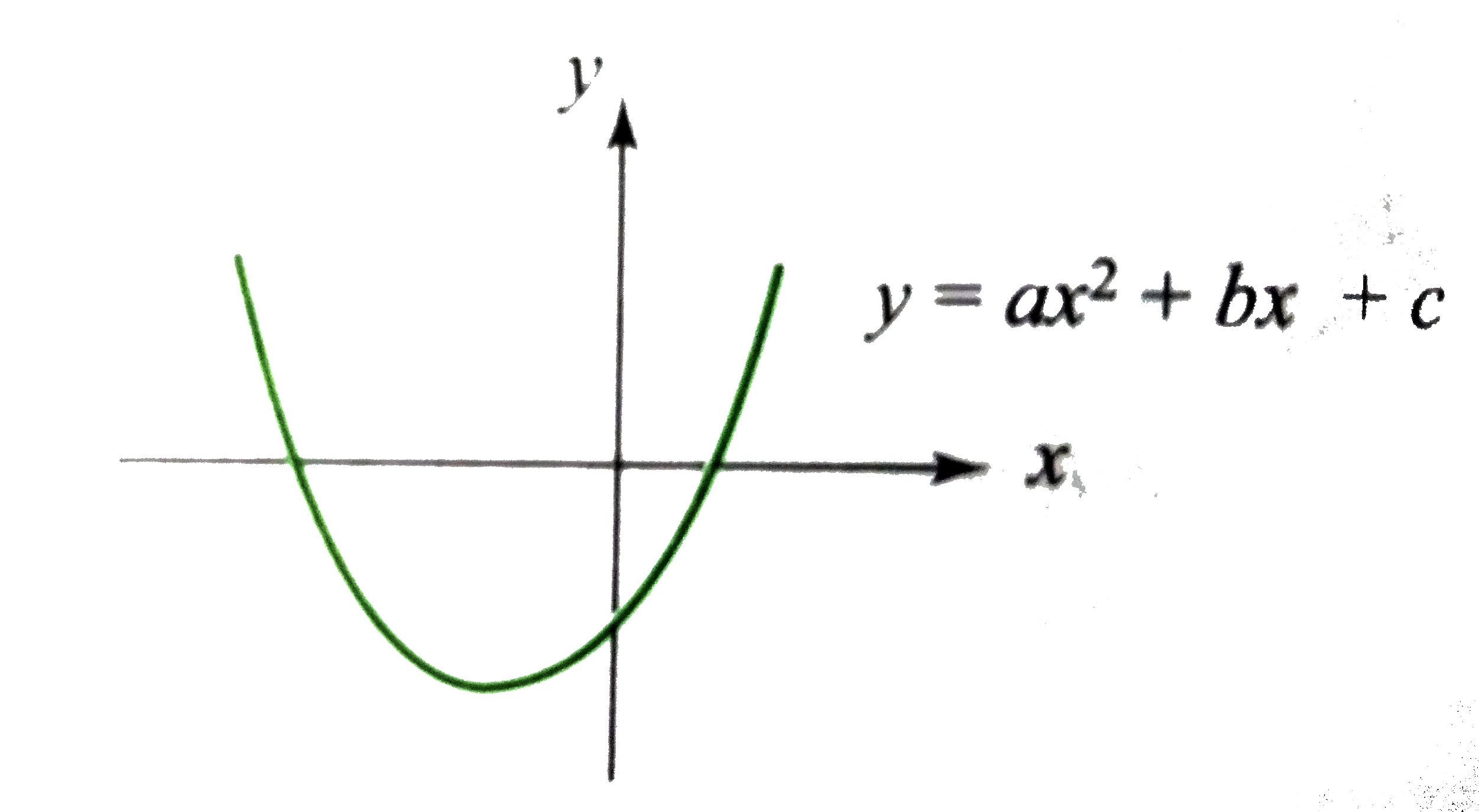If the polynomial f(x)=ax3+bx−c is exactly divisible by the polynomial g(x)=x2+bx+c,c≠0, then which of the following options is true?
c=2b2
ab=1
ac=2b
All of these
The correct Answer is:D
To solve the problem, we need to determine the relationship between the coefficients of the polynomial f(x)=ax3+bx−c and the polynomial g(x)=x2+bx+c given that f(x) is exactly divisible by g(x).
1. Understanding Divisibility:
Since f(x) is exactly divisible by g(x), we can express this relationship as:
f(x)=g(x)⋅q(x)
where q(x) is some polynomial. Given the degrees of the polynomials, f(x) is of degree 3 and g(x) is of degree 2. Therefore, q(x) must be of degree 1 (since 2+1=3).
2. Expressing q(x):
Let q(x)=mx+n, where m and n are constants.
3. Expanding the Product:
We can expand f(x) as follows:
f(x)=g(x)⋅q(x)=(x2+bx+c)(mx+n)
Expanding this gives:
=mx3+nx2+bmx2+bnx+cmx+cn
Combining like terms, we get:
=mx3+(n+bm)x2+(bn+cm)x+cn
4. Setting Coefficients Equal:
For f(x)=ax3+bx−c to hold, the coefficients of the corresponding powers of x must be equal. Thus, we can set up the following equations:
- Coefficient of x3: m=a
- Coefficient of x2: n+bm=0
- Coefficient of x1: bn+cm=b
- Constant term: cn=−c
5. Solving the Equations:
From the constant term equation cn=−c, since c≠0, we can divide both sides by c:
n=−1
Substituting n=−1 into the second equation n+bm=0:
−1+bm=0⟹bm=1⟹b=1m
Now substituting m=a:
b=1a
Finally, substituting n=−1 and m=a into the third equation bn+cm=b:
b(−1)+ca=b⟹−b+ca=b⟹ca=2b
6. Final Relationships:
We have derived the relationships:
- b=1a
- ca=2b
Conclusion:
From the relationships derived, we can conclude that the coefficients a, b, and c are related such that ca=2b and b=1a.
Since f(x) is exactly divisible by g(x), we can express this relationship as:
f(x)=g(x)⋅q(x)
where q(x) is some polynomial. Given the degrees of the polynomials, f(x) is of degree 3 and g(x) is of degree 2. Therefore, q(x) must be of degree 1 (since 2+1=3).
Let q(x)=mx+n, where m and n are constants.
We can expand f(x) as follows:
f(x)=g(x)⋅q(x)=(x2+bx+c)(mx+n)
Expanding this gives:
=mx3+nx2+bmx2+bnx+cmx+cn
Combining like terms, we get:
=mx3+(n+bm)x2+(bn+cm)x+cn
For f(x)=ax3+bx−c to hold, the coefficients of the corresponding powers of x must be equal. Thus, we can set up the following equations:
- Coefficient of x3: m=a
- Coefficient of x2: n+bm=0
- Coefficient of x1: bn+cm=b
- Constant term: cn=−c
From the constant term equation cn=−c, since c≠0, we can divide both sides by c:
n=−1
−1+bm=0⟹bm=1⟹b=1m
b=1a
b(−1)+ca=b⟹−b+ca=b⟹ca=2b
We have derived the relationships:
- b=1a
- ca=2b
From the relationships derived, we can conclude that the coefficients a, b, and c are related such that ca=2b and b=1a.
Topper's Solved these Questions
- IMO QUESTION PAPER 2019 SET BBOOK - SCIENCE OLYMPIAD FOUNDATION CHAPTER - IMO QUESTION PAPER 2019 SET BEXERCISE - EVERYDAY MATHEMATICS
10 Videos
- IMO QUESTION PAPER 2019 SET BBOOK - SCIENCE OLYMPIAD FOUNDATION CHAPTER - IMO QUESTION PAPER 2019 SET BEXERCISE - ACHIEVERS SECTION
5 Videos
- IMO QUESTION PAPER 2019 SET ABOOK - SCIENCE OLYMPIAD FOUNDATION CHAPTER - IMO QUESTION PAPER 2019 SET AEXERCISE - Achievers section
5 Videos
- IMO QUESTION PAPER 2020 SET 1BOOK - SCIENCE OLYMPIAD FOUNDATION CHAPTER - IMO QUESTION PAPER 2020 SET 1EXERCISE - Achievers Section
5 Videos
Similar Questions
Knowledge Check
If ax2+bx+c is exactly divisible by 4x+5 , then
A25a - 5b + 16c = 0.B25a + 20b + 16c = 0.C25a - 20b - 16c = 0.D25a - 20b + 16c = 0.Consider that f(x)=ax2+bx+c,D=b2−4ac , then which of the following is not true ?
AIf a>0 then minimum value of f(x) is −D4aBIf a<0, then maximum value of f(x) is −D4aCif a>0,D<0, then f(x)>0 for all x ∈ RDIf a>0,D>0 , then f(x)>0 for alll x∈RThe polynomial of type ax2+bx+c, when a=0
ALinearBQuadraticCCubicDBiquadratic
If the polynomial f(x)=ax3+bx−c is divisible by the polynomial g(x)=x2+bx+c , then ab= (a) 1 (b) 1c (c) −1 (d) −1c
View SolutionThe polynomial is exactly divisible by (x+3),(x+4) and (x+5) is
View SolutionIf the polynomial x3+ax2−bx−30 is exactly divisible by x2−2x−15. Find a and b and also the third factor.
View SolutionLet f(X)=ax2+bx+c. Consider the following diagram
 .
.
View SolutionIf √4x4+12x3+25x2+24x+16=ax2+bx+c, then which of the following is true ?
View Solution
